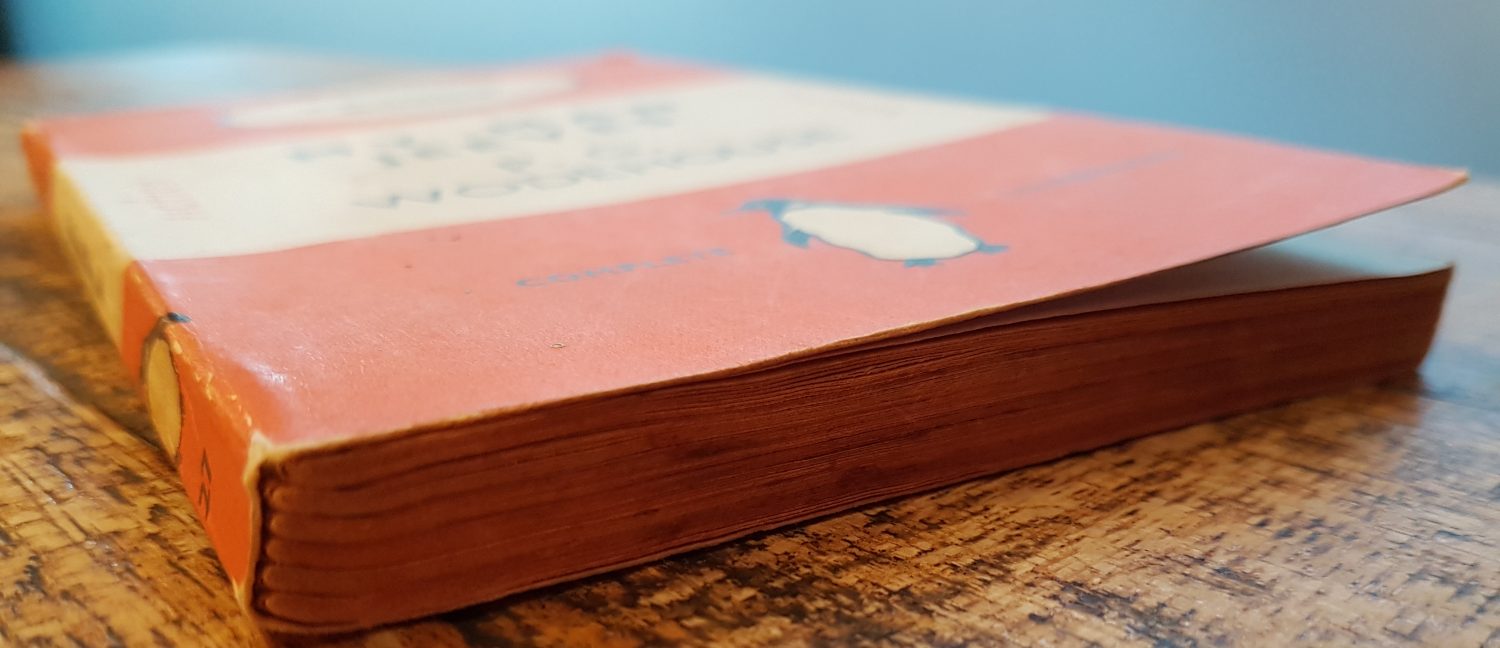
When Bertie Wooster is brimming with joy on a fine spring morning in The Inimitable Jeeves, he says:
‘In the spring, Jeeves, a livelier iris gleams upon the burnished dove.’
It is one of many Wodehouse references to the works of Alfred, Lord Tennyson (from the poem Locksley Hall). In Right Ho, Jeeves, Aunt Dahlia finds a bound volume of Tennyson just the thing for flinging at nephews, and although Bertie claims not to read Tennyson by choice, he is familiar enough with Tennyson’s stuff to quote him often. The following lines from Tennyson’s In memoriam, for example, will be familiar to all who have followed Bertie’s adventures:
That men may rise on stepping-stones
Of their dead selves to higher things.
Being of a non-poetic sort of disposition, I’m not qualified to speak at length on the merits of Tennyson or make comparisons between the writers. I must leave the heavy spade work to others, such as Inge Leimberg, who has written a detailed comparison of Plum’s A Damsel in Distress and Tennyson’s Maud in an excellent piece entitled: Across the pale parabola of Joy: Wodehouse Parodist.
My own favourite Wodehouse ‘tribute’ to Tennyson is ‘Trouble Down at Tudsleigh’ (in Young Men In Spats), in which Freddie Widgeon attempts to impress the beautiful April Carroway by brushing up on his Tennyson. The story is littered with Tennyson references, which have been helpfully documented in the ever-brilliant Madam Eulalie annotations. The story was delightfully adapted for television as part of the Wodehouse Playhouse series (further evidence that Wodehouse can be successfully adapted for screen) with John Alderton giving a memorable performance of Freddie Widgeon quoting Tennyson: ‘de-da de-da, de-da de-da, the Lady of Shallott’ .
Returning to our original quotation, a closer look at Tennyson’s Locksley Hall rings a few more bells for Wodehouse readers. The poem opens as follows:
Comrades, leave me here a little, while as yet ‘t is early morn:
Leave me here, and when you want me, sound upon the bugle-horn.
The first line is reminiscent of both Psmith (who addresses everyone ‘comrade’) and Aunt Charlotte’s rousing ‘A-hunting-we-will-go’ in The Mating Season.
But tempted though I am to wade deeper into Tennyson’s work in search of Wodehouse, I find my eyes glaze over and my pulse grows weak. Upon discovering a ‘jaundiced eye’, in about the two-hundred and thirty eighth stanza of Locksley Hall, I am a mere shadow of my former self, incapable of even a whispered ‘Ho!’ Now, more than ever, I feel the pathos of Freddie Widgeon’s ordeal in ‘Trouble Down at Tudsleigh’, traversing that fine line between comedy and tragedy.
HP


Brilliant. An excellent tribute to both Wodehouse and Tennyson!
LikeLike
Thanks old sport. I appreciate it. Are you a Tennyson fan?
LikeLike
One merely aspires for that exalted status.
LikeLike
I enjoyed your last poem.
LikeLike
Thank you.
LikeLike
Reblogged this on ashokbhatia and commented:
What ho!
Burnishing the dove is just one of the phrases which comes under the investigative lens of Plumtopia in this poast.
Enjoy!
LikeLike